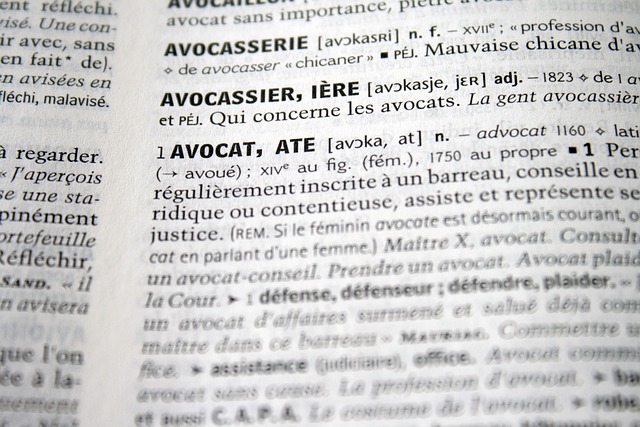The article highlights stark disparities in DUI legislation between rural and urban areas, with rural communities emphasizing community involvement due to lower population densities and fewer patrols, while urban areas face complex challenges like high-density populations leading to stricter laws, including increased sobriety checkpoints and harsher penalties. However, technology is transforming enforcement in both settings, with remote sensing, real-time analytics, and AI cameras improving accuracy, and automated license plate readers benefiting rural areas, while advanced radar and portable breath testing devices aid urban centers. AI-driven analytics tailor legislation to regional needs, ensuring fairness and equity across communities, as the rapid evolution of technology necessitates flexible laws that offer tailored solutions for rural vs urban DUI concerns.
In today’s digital era, future-proofing legislation is paramount, especially when addressing complex issues like Rural vs Urban DUI (Drunk Driving Under Influence) enforcement. This article delves into the evolving landscape of DUI laws, exploring key differences between rural and urban jurisdictions. We examine the transformative role of technology in enhancing enforcement, highlighting digital solutions for consistent and fair law application. Through case studies, we demonstrate successful tech integration and provide insights on predicting future trends in Rural vs Urban DUI Legislation.
- Understanding Rural vs Urban DUI Legislation: Key Differences
- The Role of Technology in Enhancing DUI Enforcement
- Digital Solutions for Consistent and Fair Law Application
- Challenges and Considerations for Future-Proofing Legislation
- Case Studies: Successful Tech Integration in DUI Laws
- Looking Ahead: Predicting the Evolution of Rural vs Urban DUI Legislation
Understanding Rural vs Urban DUI Legislation: Key Differences

In the realm of DUI (Driving Under the Influence) legislation, a significant distinction arises between rural and urban areas. Rural communities often face unique challenges when it comes to enforcement and punishment for DUI offenses. Herein lie several key differences that shape legal strategies. For instance, lower population densities in rural settings can lead to less stringent laws and penalties compared to urban centers. This is partly due to the varying needs of law enforcement and the resources available in each region.
Moreover, rural areas might have fewer patrols per square mile, relying heavily on community involvement for early detection. Urban DUI legislation, on the other hand, tends to be more complex and stringent, addressing high-density populations and the associated challenges of drunk driving. These cities often implement stricter measures such as increased sobriety checkpoints and harsher penalties, reflecting the need for robust prevention strategies in densely populated areas.
The Role of Technology in Enhancing DUI Enforcement

In today’s digital era, technology plays a pivotal role in enhancing DUI (Drunk Driving Impairment) enforcement across both rural and urban settings. Advanced systems like sensor-based detection, real-time data analytics, and AI-powered cameras significantly improve the accuracy and efficiency of identifying impaired drivers. For instance, remote sensing technologies can monitor road conditions and detect unusual behavior, while predictive analytics models help law enforcement anticipate high-risk areas and times, enabling them to deploy resources proactively.
When comparing rural vs urban DUI legislation, technology offers unique advantages in each context. In rural areas, where population density is lower and roads are often less congested, tech solutions can bridge the gap in resource availability. Remote surveillance systems and automated license plate readers (ALPRs) help monitor traffic flows and identify repeat offenders more effectively. Conversely, in urban centers, technology like advanced radar systems and portable breath testing devices aid in navigating dense, bustling environments, ensuring consistent DUI enforcement despite high traffic volumes.
Digital Solutions for Consistent and Fair Law Application

In today’s digital era, the application of law must keep pace with technological advancements to ensure fairness and consistency across diverse communities. Digital solutions are revolutionizing how legal processes are managed, especially when it comes to challenging areas like DUI legislation in both rural and urban settings. These solutions enable efficient data management, allowing for quick access to case histories, reducing human errors, and ensuring every citizen, regardless of their location, faces fair treatment under the law.
For instance, AI-powered legal analytics can help identify patterns in DUI cases, revealing disparities between rural and urban jurisdictions. This information is crucial for policymakers who can then tailor legislation to fit the unique needs of each region, ensuring that laws are effective and justly applied, fostering a more harmonious societal tapestry.
Challenges and Considerations for Future-Proofing Legislation

Future-proofing legislation is an intricate task, especially when considering the rapid pace of technological advancement and its impact on various sectors. One notable challenge lies in bridging the gap between urban and rural areas when drafting laws, such as those related to DUI (Driving Under the Influence). Urban and rural regions often face distinct challenges regarding enforcement and public safety. For instance, rural areas might struggle with limited access to advanced monitoring systems and resources, while urban centers grapple with higher traffic volumes and diverse vehicle types.
The Rural vs Urban DUI Legislation debate highlights the need for flexible and adaptable laws. Future-proof legislation should account for these disparities by offering tailored solutions. This approach ensures that technological innovations in law enforcement can be effectively implemented across different landscapes, fostering a safer environment for all residents, regardless of their geographical location.
Case Studies: Successful Tech Integration in DUI Laws

In recent years, technology has played a pivotal role in transforming various aspects of law enforcement, including DUI (Driving Under the Influence) legislation. Successful case studies highlight the effective integration of tech solutions to enhance rural and urban DUI laws. For instance, in rural areas, where law enforcement agencies often face resource constraints, mobile breath testing devices have been deployed. These portable tools enable officers to conduct accurate tests at the scene, reducing the need for suspect transportation and minimizing potential evidence tampering.
In contrast, urban settings present unique challenges due to higher population densities. Here, tech-driven solutions like advanced driver monitoring systems and real-time data analysis have proven invaluable. These innovations allow law enforcement to proactively identify high-risk areas and individuals, leading to more efficient patrol strategies. By leveraging these technological advancements, both rural and urban DUI legislation can adapt and stay current with the ever-evolving legal landscape, ultimately ensuring safer roads for all.
Looking Ahead: Predicting the Evolution of Rural vs Urban DUI Legislation

As technology continues to advance, it’s crucial to consider how these innovations will shape legislation, especially in contrasting rural and urban settings. In recent years, the digital divide has been a significant focus, highlighting the need for equitable access to tech solutions. This trend is expected to continue, with rural areas potentially benefiting from technological advancements to bridge the gap between urban and rural DUI (Drunk Driving Impairment) legislation.
Predicting the future of Rural vs Urban DUI Legislation requires an understanding of how technology can be leveraged. For instance, remote alcohol monitoring devices could become more prevalent in rural areas, providing real-time data on driver sobriety. Meanwhile, urban centers might adopt innovative enforcement strategies utilizing AI-powered cameras and predictive analytics to identify high-risk areas. This evolution ensures that both regions adapt to new tech solutions, ultimately enhancing road safety.
As we look ahead, it’s clear that technology plays a pivotal role in shaping the future of Rural vs Urban DUI Legislation. The successful integration of digital solutions has already demonstrated enhanced consistency and fairness in law application. By leveraging technology, we can ensure that legislation keeps pace with societal changes and remains effective across diverse environments. Future-proofing these laws involves continuous evaluation of emerging tech and adapting regulations accordingly, ultimately leading to safer communities for all.






